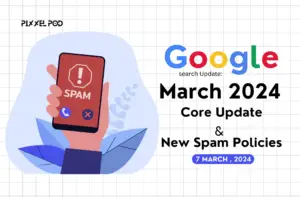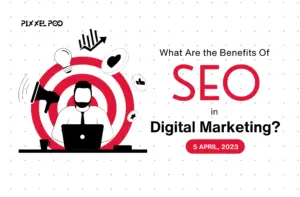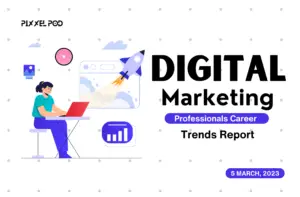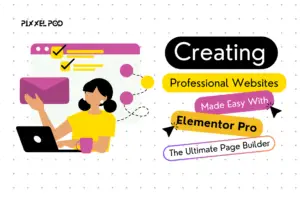Table of Contents
ToggleLast Updated on November 13, 2024 by Admin
While nothing is guaranteed in the business world, the current economic uncertainty has companies scrutinizing their bottom line, and pressuring marketing teams to produce outsized results with scaled-down resources.
So, how do you navigate the changing economic landscape and protect your lead pipeline? First, let us talk about why marketing matters in a turbulent economic environment. Then, we will focus on the strategies and tactics you can count on to survive and thrive when times are tough.
Why market during a recession
For evidence that supports the importance of smart marketing during financial uncertainty, look no further than the Great Recession of the early 80s.
According to a literature review of existing research, seven studies found that preserving campaign budgets could increase sales during and after an economic downturn. Most notably, one study concludes companies that refused to reduce ad spending increased sales by almost 340% within four years of the economic recovery.
Other studies strike a similar chord — if you fail to feed your sales pipeline, your revenue generation will lag during the economic recovery.
There are two overarching reasons that continued marketing activities will help your business stay the course during economic turbulence.
You cannot seize the lion’s share
If your competitors have abandoned their marketing campaigns to garner short-term savings, now is your time to shine. By maintaining (or increasing) your marketing spend, you position your business to leverage the white space competitors leave unclaimed when they recede into the background during an economic downturn.
Ready for recovery
Marketing during a recession builds resilience, allowing for a quicker bounce-back post-recession. While your competitors are still resuscitating dormant marketing plans, you will have increased your momentum and be heading to market dominance.
How to market during a recession
Whether you are seeing economic indicators of a recession or an industry-wide lull, prepare to justify your marketing budget and share your proactive marketing plans with key stakeholders.
Focus on high-ROI activities
While cost-cutting may be front-of-mind for decision-makers, present a case for saving your budget by offering a plan that doubles down on high-ROI activities. Focus your strategy on leveraging the opportunities rather than mitigating the liabilities in a challenging market.
For example, a search-optimized website can increase traffic and conversions, which are instrumental for revenue growth. We have seen seo campaigns exponentially increase organic search traffic to a customer’s website, pulling companies back from the brink of disaster.
Make data-driven decisions
Creating more revenue with a smaller budget is tougher but not impossible. If you are tasked with producing outsized results with a downsized budget, center your plans around high-ROI activities.
When it comes to digital marketing, for example, you may find that seo-vs-ppc/”>seo has a better click-through rate and higher ROI than PPC campaigns. Scaling back advertising spending to re-allocate funds to seo could yield better long-term and short-term results.
Does seo work during a recession?
Yes, seo is a worthwhile investment during a recession. Since seo works by funneling organic traffic from relevant search terms to your website, you can benefit from a robust search engine optimization strategy regardless of the economic climate.
Optimizing your website content around particular keywords and following technical seo best practices increases your chances of ranking well in search results. Data demonstrates a direct correlation between Google page rank and organic traffic, meaning an ascension in search engine results generally leads to more organic traffic to your website.
Seize the opportunity to rank
Not only will seo work during a recession but focusing on search engine optimization strategies during an economic downturn may help you snap up keywords your competitors have been dominating. If you continue creating seo content and participating in link-building activities while others cut back, you can usurp their keyword positions.
Competitors who “stop” seo create a white space that businesses who double down on seo can take advantage of. Essentially, you can reap the benefits of short-term gains with long-term reach. Then, when economic indicators turn around — which they’ll inevitably do — your competitors will be in the unenviable position of needing to catch up to you.
How a family-run travel business came back strong post-Covid
Before the start of the pandemic, we partnered with a family-owned and operated tourism company to help boost their search visibility. When global lockdowns paralyzed the travel industry, we would have understood if they opted to put their campaign on hold. Instead, they doubled down on their seo efforts, creating content specifically targeted to address traveller uncertainty during this time. Immanuel Tour’s organic traffic more than doubled during the first year of the pandemic, and they captured valuable keywords that continue to bring high-quality traffic to their site.
This story demonstrates an important point. While seo activities can yield long-term results, there’s no way to “lock in” rank. If your top-ranking competitors cut their seo budget, you have a critical opportunity to capture new customers in a less competitive environment.
Learn more about how seo can amplify your other marketing activities and seo/”>pinpoint how much to spend on seo.
Find a partner you can trust
Economic events can have lasting effects on consumer behavior and generate big opportunities for marketers bold enough to recognize and act on them. Step forward into the whitespace created by competitor cutbacks and maximize your seo potential now to yield compounding results that will pay dividends in the future.
At Victorious, we can help you identify high-impact opportunities to generate the highest ROI on your seo campaign. Schedule a free site analysis, and we’ll talk about your goals.







